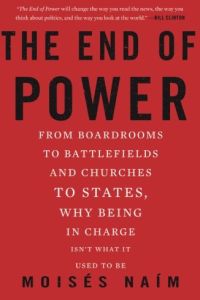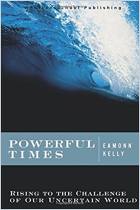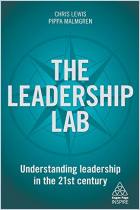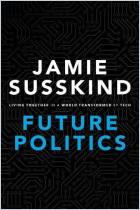Зарегистрируйтесь на getAbstract, чтобы получить доступ к этому краткому изложению.

Зарегистрируйтесь на getAbstract, чтобы получить доступ к этому краткому изложению.
Moisés Naím
The End of Power
From Boardrooms to Battlefields and Churches to States, Why Being In Charge Isn’t What It Used to Be
Basic Books, 2014
Что внутри?
Shifts in getting, using and losing power set new limits on nations, armies, companies and once-potent institutions.
Recommendation
Surprised by the limitations on his power after he became a senior government minister in Venezuela in 1989, Moisés Naím explores whether other powerful people and organizations have experienced a similar erosion of influence. His sweeping examination of how people and institutions acquire, use and lose power offers insights into why governments can’t get anything done and how obscure start-ups can abruptly displace rival giants. Conglomerates, organized religion and powerful nations still enjoy great power, but Naím provides evidence that today’s more dispersed power proves easier to obtain and to lose, but harder to exercise. His argument ranges across politics, war, business, philanthropy and religion. getAbstract recommends his analysis to anyone interested in the broad trends that shape society. Naím’s other recommendation comes from Facebook founder Mark Zuckerberg, who selected this book as the first entry on his public reading list and, by so doing, made it a bestseller.
Summary
About the Author
Moisés Naím is the former Venezuelan trade minister and editor of Foreign Policy Magazine. In 2014, he was named among the world’s 100 leading thinkers.




















Comment on this summary